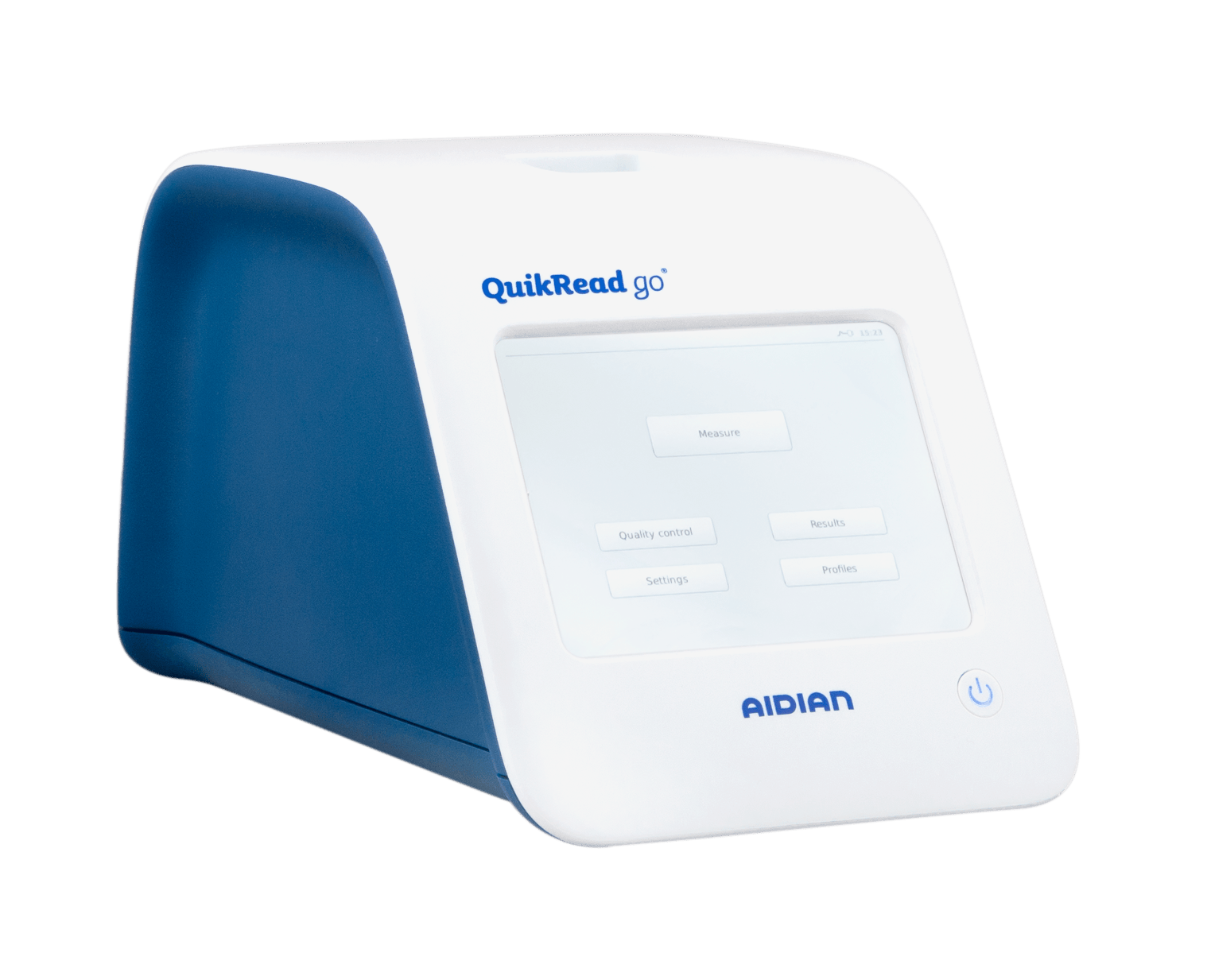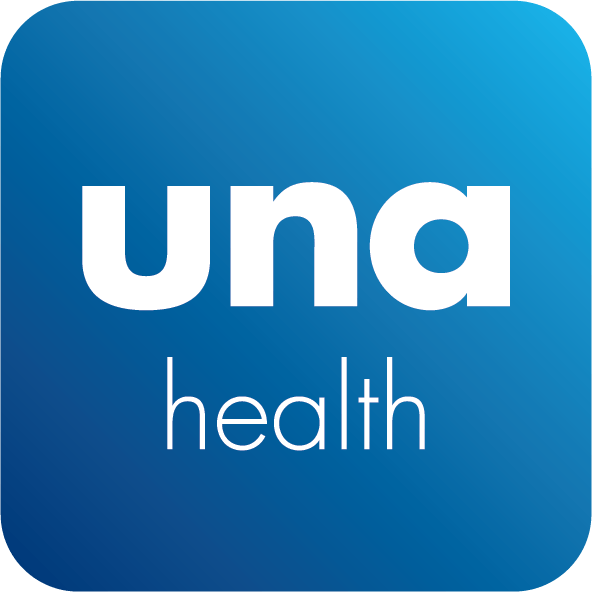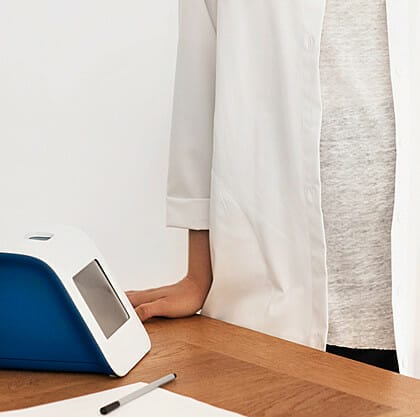
CRP Near-Patient Testing – A Game Changer In Primary Care Settings
Case Study on QuikRead go® CRP at Lisle Medical, a mobile private GP service in West Sussex
Background
Lisle Medical, a mobile private GP service in West Sussex, use the QuikRead go device to perform easy, near-patient CRP testing in the community. The practice led by Dr Piers Foster (GP and Founder) provides convenient and personalised GP services for adults and children.
C-reactive protein (CRP) testing is one of the tools they use to aid in the quick diagnosis, accurate treatment decision-making and guidance on appropriate antibiotic prescribing.
Supporting quick and accurate diagnosis
Lisle Medical has invested in a point-of-care device called the QuikRead go®, to help patients in their community understand the reasons behind the antibiotic treatment decision and avoid unnecessary antibiotic usage through quick and accurate diagnosis1.
The QuikRead go® instrument is a fully portable, compact, accurate and automatic system used for quantitative measurement of CRP. It is designed to aid in the rapid detection of bacterial infections. The test requires only a 10 µl finger prick whole blood sample and has actionable results available in two minutes across a clinically relevant measuring range of 1 and 200mg/L.
How does CRP testing guide antibiotic prescribing?
CRP, or C-reactive protein is a substance produced by the liver in response to inflammation and it is commonly used to monitor infections and inflammation.
CRP increases when a patient is suffering from a bacterial infection but does not increase during viral infections. As antibiotics are only effective against bacterial infections, measuring CRP levels can be a valuable tool for guiding antibiotic prescribing.
Viruses cause 85% to 95% of cases of acute bronchitis in healthy adults.2
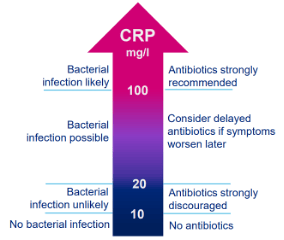
A recent study found that in the outpatient setting, 30% of the antibiotics prescribed are unnecessary3. The same study, exploring patient knowledge and awareness of appropriate use of antibiotics, revealed that although 89% of patients correctly believed that antibiotics work well for treating infections from bacteria, 53% incorrectly believed that antibiotics work well for treating viral infections.
Diagram 1 shows how the CRP readings can support the clinician’s decision to prescribe antibiotics or not.
“The CRP results support us in the clinical assessment and the reading allows us to manage the patient’s condition in a more targeted and evidence-based way”, Dr Piers Foster adds.
As the most common causes of a sore throat, cough and fatigue are viral infections, the unnecessary prescribing of antibiotics can subject patients to experience the unnecessary mild side effects associated with some commonly used antibiotics such as diarrhoea, nausea and in very rare cases allergic reactions.
Along with possible side effects, there is a growing concern worldwide about superbugs and antimicrobial resistance4. This happens when a type of bacteria is continuously exposed to antibiotics it can create a defence mechanism against these antibiotics rendering future use of these drugs ineffective.

“The QuikRead go has been a game-changer for our clinic. It not only provides us with quick and accurate results, but it also helps us make informed decisions regarding patient care.
With the ability to measure C-reactive protein levels from a small finger prick sample, we can quickly identify patients who have a high likelihood of having a bacterial infection and start them on appropriate treatment without delay. This has not only helped us avoid unnecessary antibiotic usage but has also improved patient outcomes and satisfaction.
The QuikRead go is easy to use, reliable and most of all, it is portable, meaning we can easily take it with us to the patient’s home.
It has become an essential tool in our daily practice”.
— Dr Piers Foster, GP and Founder of Lisle Medical
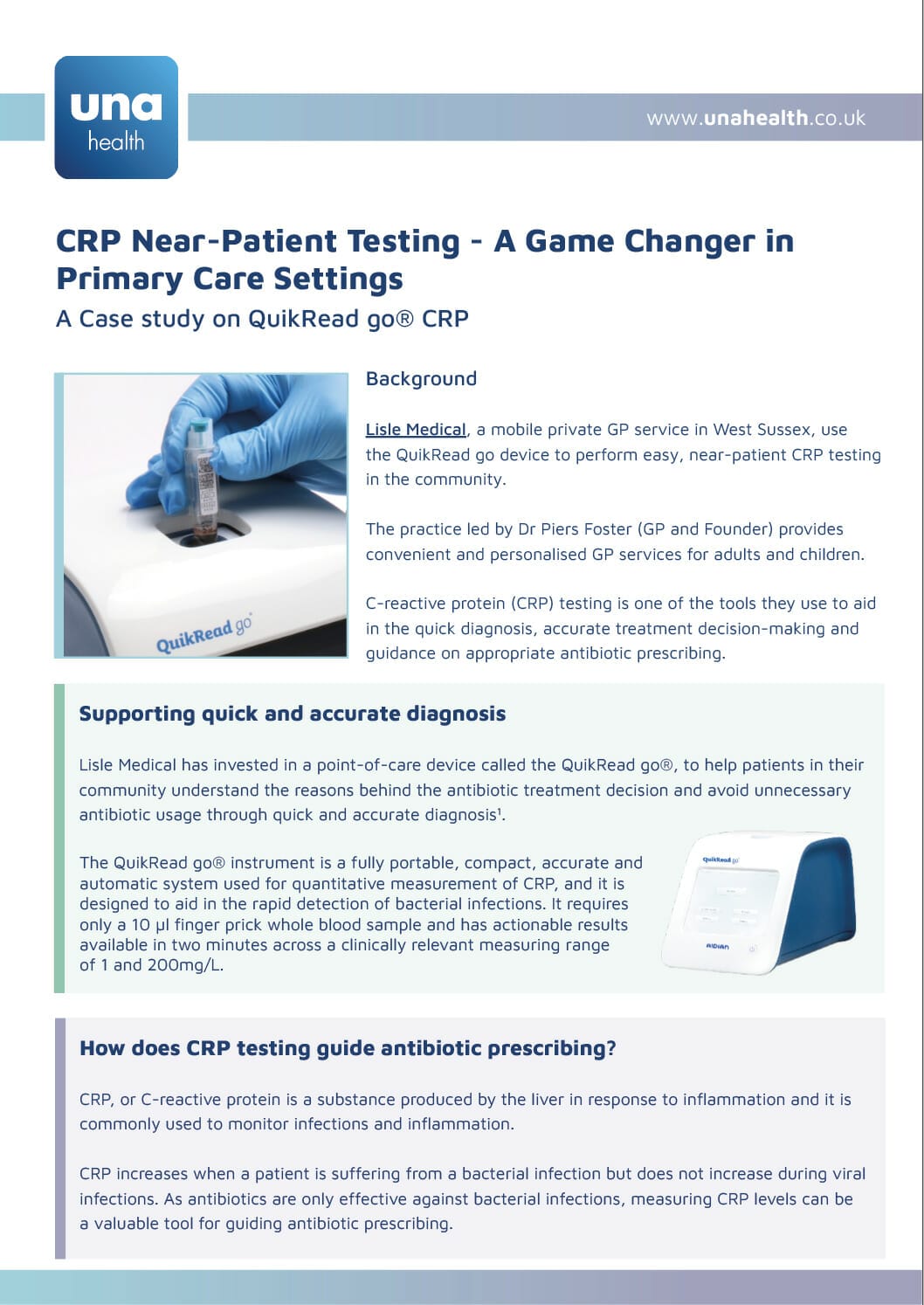
Case study available to download
CRP Near-Patient Testing – A Game Changer in Primary Care Settings
Resources and further reading:
[1] Do I need antibiotics? – Dr Piers Foster, Lisle Medical – https://www.lislemedical.com/news/do-i-need-antibiotics
[2] Worrall G. Acute bronchitis. Can Fam Physician. 2008 Feb;54(2):238-9. PMID: 18272643; PMCID: PMC2278319 – https://www.ncbi.nlm.nih.gov/pmc/articles/PMC2278319/
[3] Exploring Patient Awareness and Perceptions of the Appropriate Use of Antibiotics: A Mixed-Methods Study – PMC (nih.gov) – https://www.ncbi.nlm.nih.gov/pmc/articles/PMC5745466/
[4] What is so important about AMR Anyway? – A Una Health Blog – https://unahealth.co.uk/blog/what-is-so-important-about-amr-anyway/
